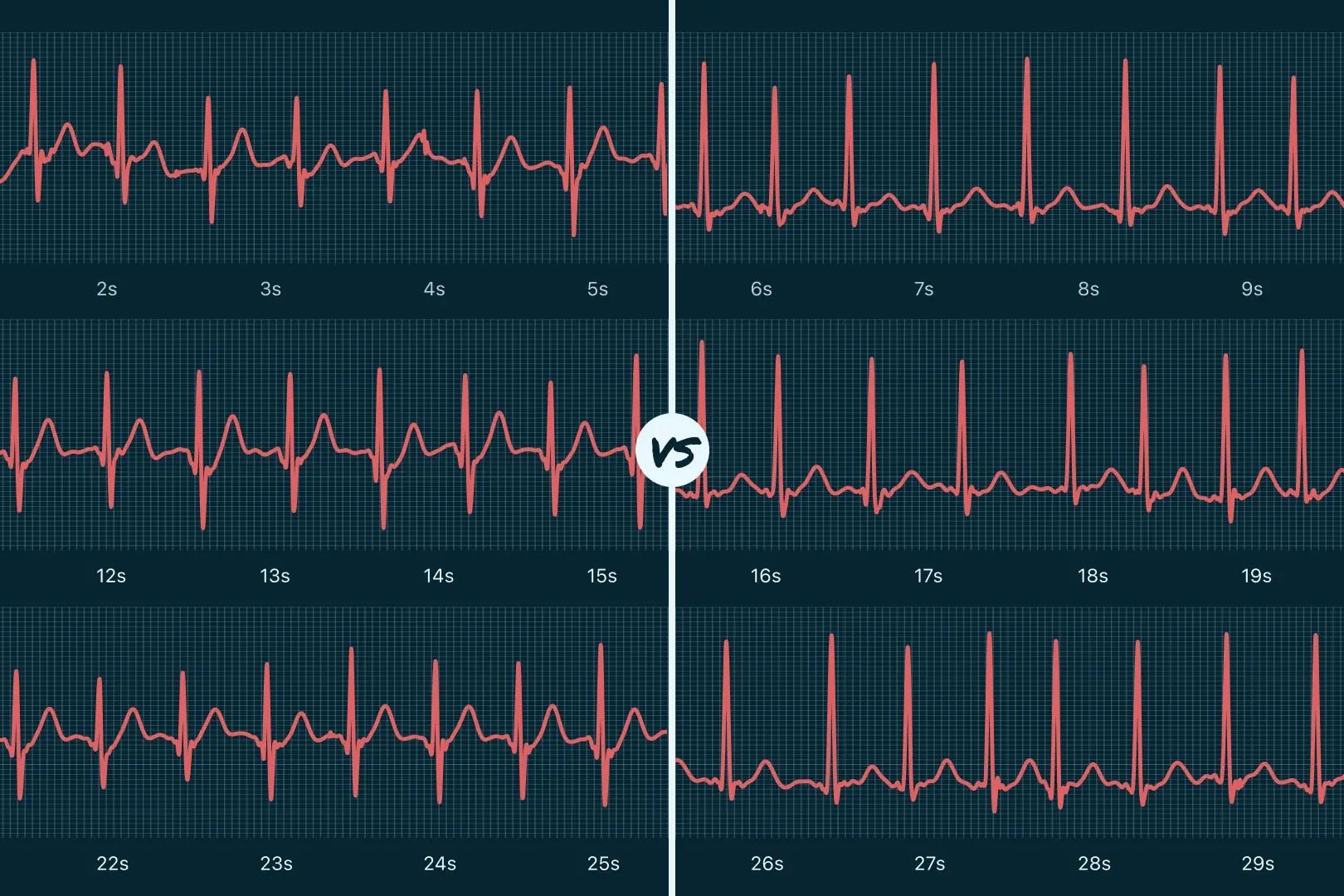
His Bundle Tachycardia is a rare but significant heart condition that affects the electrical conduction system. This condition can cause rapid heartbeats, leading to symptoms like dizziness, shortness of breath, and even fainting. Understanding this condition is crucial for those affected and their loved ones. In this post, we will share 30 facts about His Bundle Tachycardia to help you grasp its complexities. From its causes and symptoms to treatment options and lifestyle adjustments, these facts aim to provide a comprehensive overview. Whether you're a patient, caregiver, or just curious, this information will be valuable.
Key Takeaways:
- His Bundle Tachycardia is a rare fast heart rhythm that can cause palpitations, dizziness, and fatigue. Understanding its causes and treatment options can help manage the condition effectively.
- Lifestyle changes, medication, and medical procedures can help manage His Bundle Tachycardia. Regular follow-up appointments and stress management techniques are important for improving quality of life.
What is His Bundle Tachycardia?
His Bundle Tachycardia is a rare type of arrhythmia that originates from the His bundle, a collection of heart muscle cells specialized for electrical conduction. Understanding this condition can help in recognizing symptoms and seeking appropriate treatment.
-
His Bundle Tachycardia is a form of supraventricular tachycardia (SVT), which means it originates above the ventricles in the heart.
-
The His bundle is part of the heart's electrical conduction system, responsible for transmitting impulses from the atria to the ventricles.
-
This condition can cause the heart to beat very fast, sometimes exceeding 100 beats per minute.
-
Symptoms often include palpitations, dizziness, shortness of breath, and fatigue.
-
His Bundle Tachycardia is more common in people with underlying heart conditions, such as congenital heart disease or cardiomyopathy.
Causes and Risk Factors
Understanding the causes and risk factors can help in early diagnosis and management of His Bundle Tachycardia.
-
Genetic mutations can play a role in the development of His Bundle Tachycardia.
-
Certain medications, especially those affecting the heart's electrical system, can trigger this condition.
-
Electrolyte imbalances, such as low potassium or magnesium levels, can increase the risk.
-
Stress and anxiety are known to exacerbate symptoms of His Bundle Tachycardia.
-
Structural abnormalities in the heart, like scar tissue from previous heart surgery, can lead to this arrhythmia.
Diagnosis
Accurate diagnosis is crucial for effective treatment. Various tests and procedures help in identifying His Bundle Tachycardia.
-
An electrocardiogram (ECG) is often the first test used to diagnose this condition.
-
Holter monitors can record heart activity over 24-48 hours, providing more detailed information.
-
Electrophysiological studies (EPS) involve inserting catheters into the heart to study its electrical activity.
-
Echocardiograms use ultrasound to create images of the heart, helping to identify structural issues.
-
Blood tests can check for electrolyte imbalances or other underlying conditions.
Treatment Options
Several treatment options are available, ranging from lifestyle changes to medical procedures.
-
Medications like beta-blockers or calcium channel blockers can help control heart rate.
-
Antiarrhythmic drugs may be prescribed to maintain a normal heart rhythm.
-
Catheter ablation is a procedure that destroys small areas of heart tissue causing the arrhythmia.
-
Pacemakers can be implanted to help regulate heartbeats in severe cases.
-
Lifestyle changes, such as reducing caffeine and alcohol intake, can also help manage symptoms.
Living with His Bundle Tachycardia
Managing this condition involves ongoing care and lifestyle adjustments to improve quality of life.
-
Regular follow-up appointments with a cardiologist are essential for monitoring the condition.
-
Keeping a symptom diary can help track triggers and effectiveness of treatments.
-
Stress management techniques, like yoga or meditation, can reduce the frequency of episodes.
-
Staying hydrated and maintaining a balanced diet can support overall heart health.
-
Exercise is beneficial, but it's important to consult a doctor to determine safe levels of activity.
Prognosis and Outlook
Understanding the long-term outlook can help patients and their families prepare for the future.
-
With proper treatment, many people with His Bundle Tachycardia can lead normal, active lives.
-
Early diagnosis and intervention can significantly improve the prognosis.
-
Ongoing research is focused on better understanding and treating this rare condition.
-
Support groups and counseling can provide emotional support and practical advice.
-
Advances in medical technology continue to improve the management and outcomes of His Bundle Tachycardia.
Final Thoughts on His Bundle Tachycardia
Understanding His Bundle Tachycardia can make a huge difference in managing heart health. This condition, though rare, requires attention and proper medical care. Knowing the symptoms, such as rapid heartbeats and dizziness, helps in early detection. Treatments range from medications to procedures like catheter ablation, which can significantly improve quality of life.
Living with His Bundle Tachycardia means regular check-ups and possibly lifestyle changes. Staying informed and proactive can lead to better outcomes. If you or someone you know shows signs, consult a healthcare professional promptly.
Remember, heart health is crucial. Don't ignore unusual symptoms. With the right knowledge and care, managing His Bundle Tachycardia becomes less daunting. Stay informed, stay healthy, and always prioritize your heart.
Frequently Asked Questions
Was this page helpful?
Our commitment to delivering trustworthy and engaging content is at the heart of what we do. Each fact on our site is contributed by real users like you, bringing a wealth of diverse insights and information. To ensure the highest standards of accuracy and reliability, our dedicated editors meticulously review each submission. This process guarantees that the facts we share are not only fascinating but also credible. Trust in our commitment to quality and authenticity as you explore and learn with us.
